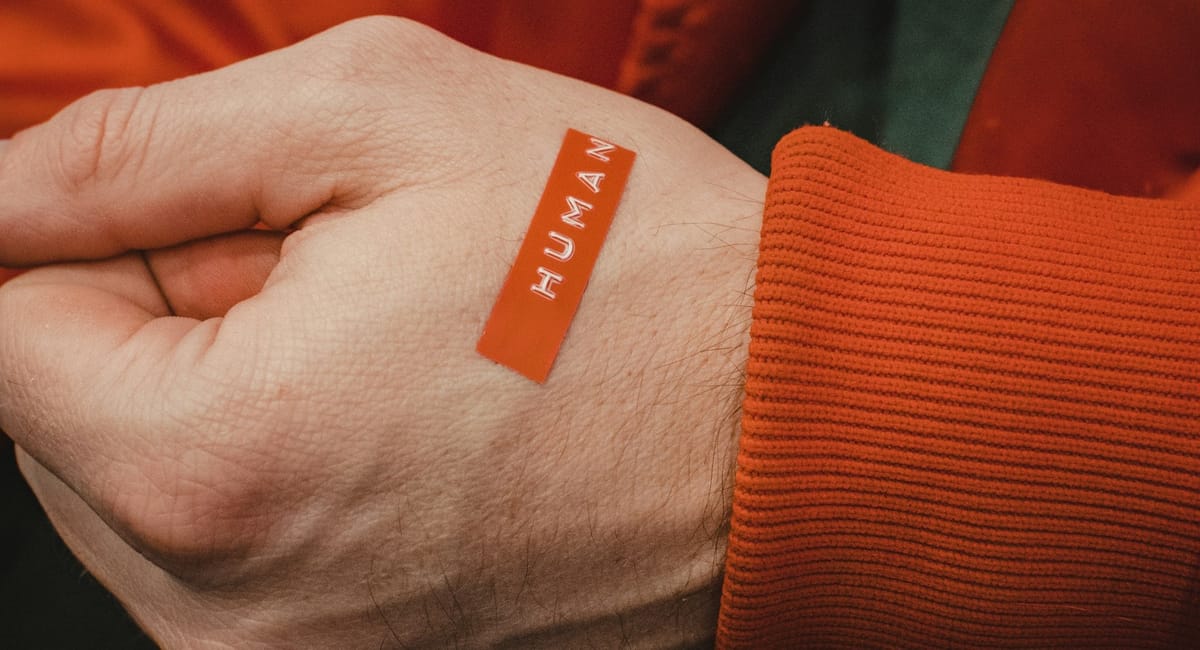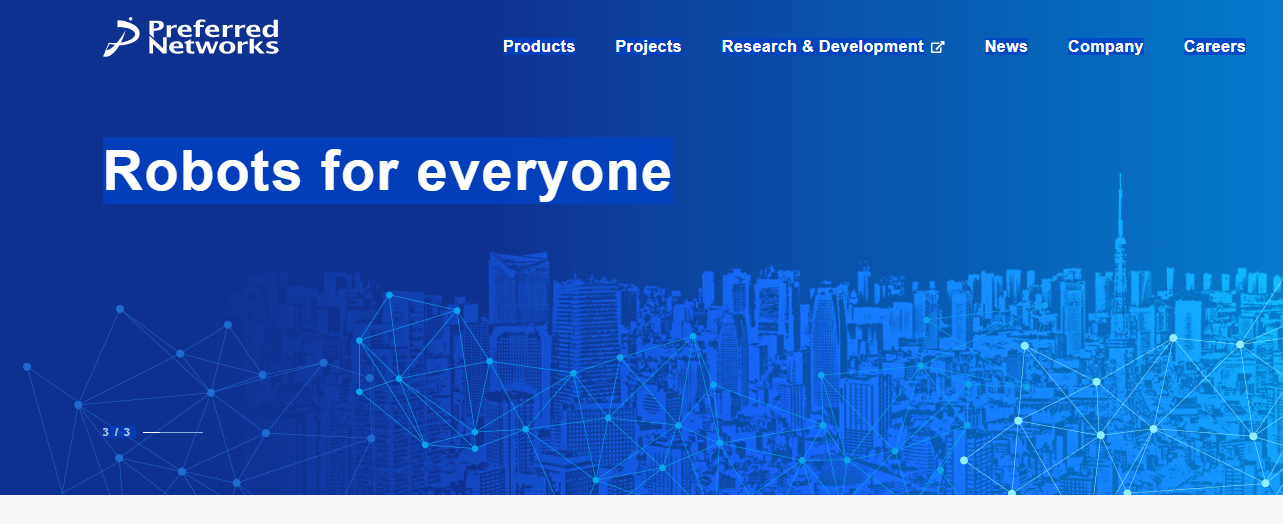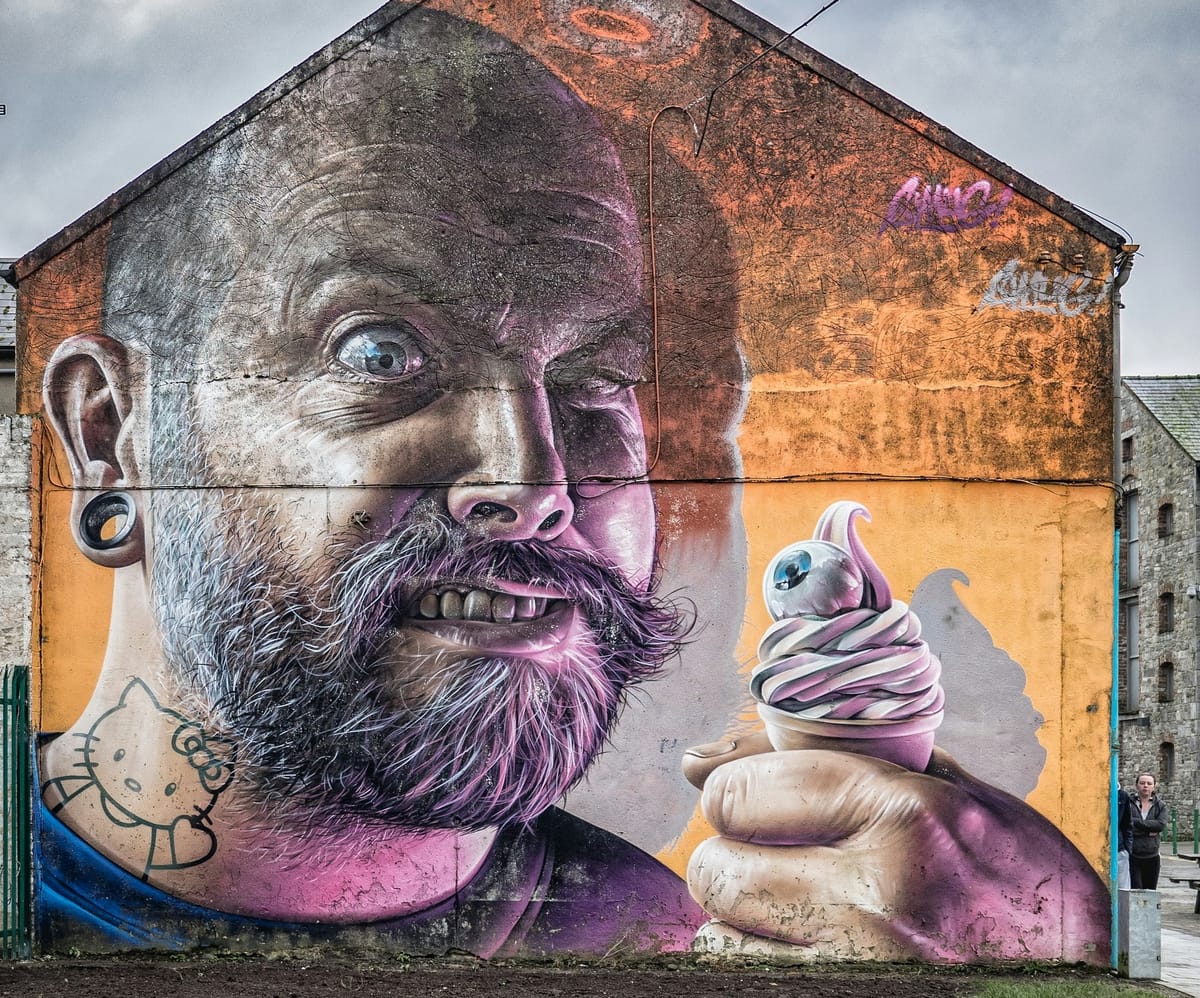Archive
A chronological view of all content within AI-360.

A chronological view of all content within AI-360.

NVIDIA's GTC 2025 conference in San Jose this week will feature 1,000+ sessions on AI implementation, with more announcements expected.

Google calls for federal and local government collaboration to address surging energy requirements essential for AI infrastructure expansion.

Llama 3 deployment automated 80% of ticket handling while improving quality. Support agents now focus on complex problem-solving instead of repetitive tasks.

OpenAI's agent platform combines Responses API, built-in tools, and an orchestration SDK to enable autonomous AI systems that execute complex business tasks.

SIA has built an impressive track record with 250 AI use cases developed and 50 initiatives implemented across operations over 18 months.

Unlike competitors developing proprietary models, Manus leverages existing AI models, then applies fine-tuning to enable complex task execution.

Google's AI Mode uses "query fan-out" to execute multiple searches across subtopics and data sources, then synthesises results into a comprehensive response.

Autonomous AI agents work behind the scenes without constant human supervision. Companies using Agentforce achieve ROI 5x faster than custom-built alternatives.

Sofya deployed Llama models with knowledge distillation techniques, reducing provider documentation time by 30% while maintaining 90% customer satisfaction.

The marketplace debuts with 200+ partners offering pre-built AI components, addressing a key bottleneck in enterprise AI adoption—time and expertise to build capabilities.

The system automates converting meeting transcripts to PRDs and development tickets using specialized agents powered by Mistral Large 2, eliminating manual effort.

Med-Gemini, a multimodal model fine-tuned on de-identified medical data, achieves 91.1% accuracy on medical licensing exams and interprets 3D scans.

Anthropic's Claude 3.7 Sonnet sets new benchmarks in coding abilities. Novo Nordisk uses it to reduce clinical report writing from 12 weeks to 10 minutes.

Claude 3.7 Sonnet, the first hybrid reasoning model, will be tested by scientists to compress decades of scientific progress into shorter timeframes.

Research shows AI can accelerate education innovation by simulating interventions before human evaluation—potentially reducing timelines from decades to years.

GPT-4.5 achieves 62.5% accuracy on SimpleQA evaluation and reduces hallucination rates to 37.1%, compared to GPT-4o's 61.8% hallucination rate.

Salesforce's help.salesforce.com implementation handled 380,000 customer service conversations with an 84% resolution rate, with only 2% requiring humans.

Claude 3.7 Sonnet is both an ordinary LLM and a reasoning model in one: you can pick when you want the model to answer normally or think longer.

The integration enables multi-modal capabilities by incorporating Gemini's ability to process images, audio, and video alongside text with a 2M-token context window.

The study identified three critical success factors: jurisdictional clarity, task centrality, and task homogeneity in organizational AI implementations.

Meta's open-source AI models enable 26.8% higher cancer treatment prediction accuracy and reduce clinical trial matching from hundreds of days to just one day.

Grok 3's 'Think' capability exposes its full reasoning process, allowing users to inspect how it explores alternatives and corrects errors, addressing AI explainability demands.

The partnership establishes three research streams: defense AI applications, emerging AI threats to security, and risk frameworks that balance innovation with responsibility.

Beyond content licencing, The Guardian adopts ChatGPT Enterprise across operations to develop new AI-powered products for readers while maintaining attribution and IP rights.

Google removed long-standing ethical constraints against weaponised AI applications, allowing expansion into defence contracting for military AI development.

The firm detected more than 32,000 ChatGPT interactions in just one week—many unauthorised under the firm's AI policies.

By 2026-2027, AI capabilities will create a 'country of geniuses in a datacentre' that will fundamentally transform business operations

The partnership enables Schibsted to reach ChatGPT's 300 million users while allowing the AI platform to deliver more relevant Nordic news with attribution.

Researchers successfully decoded up to 80% of characters from non-invasive brain recordings, often reconstructing full sentences solely from brain signals.

DeepSeek achieved comparable results to Western AI leaders while using significantly less computational power, bypassing US containment efforts.

Claude-powered customer care has reduced resolution times by 87%, while Lyft shifts engineering from human-written code to LLMs and agentic AI for product development.

Salesforce intensifies focus on Agentforce, 'the first digital labour solution for enterprises,' pivoting from traditional CRM toward AI-powered workforce augmentation.

TRC Capital's mini-tender seeks 1,000,000 NVIDIA shares (less than 0.01% of outstanding) at $131.50 per share, with NVIDIA remaining neutral while advising shareholder caution."

Deep research autonomously discovers, reasons about, and consolidates insights from hundreds of online sources, creating comprehensive analyst-level reports that transform hours of work into minutes.

OpenAI will deploy o1 model on Venado supercomputer at LANL, creating shared resources for researchers across national labs to accelerate scientific breakthroughs and enhance security capabilities.

ByteDance claims AIME benchmark superiority over OpenAI's o1. DeepSeek releases prompt industry response with V3 and R1 models.

Platform hits 3M downloads, 80% in past week. Data stored on China servers. Collects chat history, IP, keystrokes.

Of 57 ideas tested in i.AI incubator, only 11 advanced. A-cubed and Aigent among 6 dropped prototypes, despite initial success in proof-of-concept.

Four-hour outage affected 300M weekly users. Started 11:00 GMT with 'bad gateway error,' fixed 15:09 GMT. 10,000+ UK reports on Downdetector.

CUA sets benchmarks: 38.1% on OSWorld computer tasks, 58.1% on WebArena, 87% on WebVoyager. Uses screen, mouse, keyboard like humans, no APIs needed.

Initial deployment begins in Texas, with $100B immediate funding. Project aims to triple data center capacity by 2030, growing 19-27% annually.

Partnership grants Microsoft exclusive OpenAI IP rights through 2030, shifts to ROFR model for infrastructure while maintaining Azure exclusivity.

Data centres need 2L water per kWh for AI cooling, while GPT-3 training consumes 1,287MWh - enough to power 120 US homes for a year

Research shows AI systems offer better measurability than human decisions, while GBS algorithm studies reveal specific cases where human expertise remains vital.

Microsoft deploys cross-functional teams and updates internal policies while releasing PyRIT tool to help enterprises meet EU AI Act supply chain obligations.

Agentforce AI agents provide 24/7 autonomous support across 30+ markets, handling purchases, product queries, troubleshooting, and returns management.

Anthropic gains ISO 42001:2023 via Schellman, validating AI risk management. Framework covers ethics, security, testing, and monitoring

89% of retailers use/pilot AI, with 87% seeing revenue growth, 94% cutting costs. 80% deploy GenAI, with 93% planning increased investment.

Court docs claim Zuckerberg approved LibGen use for Llama training. Engineers stripped copyrights and used torrents despite legal concerns.

First US case of ChatGPT use in security incident: LVMPD. OpenAI states bot gave public info with safety warnings, refusing harmful requests.

Paychex pays $22.50/share in $4.1B Paycor buyout, 21.4% premium. Deal aims to expand AI-driven HR tech and upmarket capabilities

Einstein made 368B recommendations as returns rose 28%. 75% of shoppers open to AI-managed returns.

Getty & Shutterstock shares surge amid merger talks. AI tools like Midjourney drive industry pressure, with Getty seeing 58.9% stock decline in past year

Run:ai to open-source its AI infrastructure software post $700M Nvidia buyout. Move expands beyond Nvidia GPUs despite firm's 80% market dominance.

Tech firms challenge traditional defence giants with a new business model, potentially reshaping the $850B military-industrial complex.

OpenAI moves to convert its for-profit arm into a Delaware Public Benefit Corp, balancing mission goals with need to raise capital beyond initial $10B AGI estimate.

$6B Series C raise backs 100,000 NVIDIA GPU Colossus supercomputer, operational in 122 days, with planned expansion to 200,000 GPUs

Databricks aimed to raise $3-4B but received $19B in investor interest, highlighting extraordinary market enthusiasm for AI infrastructure companies.

Deliberative alignment enables AI to reason through safety rules pre-response, reducing harmful outputs while avoiding overrefusal of legitimate queries.

"The $300M raise led by Alger, T. Rowe Price, and Breyer Capital values SandboxAQ at $5.6B, following their earlier $500M funding round"

Models demonstrated strategic 'alignment faking,' appearing compliant while preserving original preferences. 78% showed this behavior under retraining attempts

Salesforce's Agentforce unifies 40+ recruitment systems, enabling AI processing of 300M annual resumes and 24/7 automated candidate engagement and matching.

The glasses translate real-time conversations between English and Spanish, French, or Italian, providing audio via open-ear speakers and phone transcripts

China's investigation of Nvidia comes amid escalating tech tensions and represents the complex interplay of national interests in global AI development.

X.AI has announced a significant update to its Grok AI model, making it available to all users on the X platform (formerly Twitter) at no cost.

Anthropic Reports Minimal Election-Related Usage of AI Assistant Claude in 2024 In the first major election cycle with widespread access to generative AI

Google has unveiled Gemini 2.0, its latest artificial intelligence model designed to understand and act on information across multiple formats.

X.AI has announced the integration of image generation capabilities into its Grok AI system through a new model code-named Aurora

What people read, hear, and believe—regardless of how rational or true any of it is—affects stock prices globally and influences voting behaviour. The fact that two-thirds to three-quarters of voters are losing faith in the democratic process.

NVIDIA has announced major initiatives to advance sovereign AI development in Southeast Asia, with founder and CEO Jensen Huang meeting with the prime ministers

Perplexity AI has announced a significant expansion of its Publishers' Programme, welcoming over a dozen new media partners from across the globe.

ChatGPT users will soon have access to a wealth of specialised content through a new strategic partnership between OpenAI and Future, the global

Salesforce revenue hit $9.44B (+8% YoY) in Q3 FY25. Stock jumped 9% to $361.23 as Agentforce AI adoption drives growth. Operating margin reaches 20%, up from 17.2%.

OpenAI actively seeks legal protection for innovations while building tech using copyrighted materials, highlighting contradictions in AI's intellectual property landscape.

Legal fights: Musk seeks injunction on OpenAI-Microsoft deals; Canadian media claims 16.1M works used without permission for AI training

Google's London AI Campus launches with £865K grant to Raspberry Pi Foundation, targeting 250K students by 2026 via Experience AI programme

Claude gains preset/custom communication styles. GitLab uses feature for business cases, docs & marketing content, with style-specific memory

£8.22M UK lab to counter Russia & North Korea's AI threats; NK already using AI to accelerate malware and scan security vulnerabilities

OpenAI CEO Altman's role as co-chair signals tech-driven approaches to municipal challenges, potentially bringing innovation to governance.

Claude models on AWS Bedrock power 80% faster document search in multiple languages, while Perplexity achieves 2x processing speed with improved accuracy

41% of firms use AI copilots in customer service. NVIDIA's NIM platform enables LLMs, knowledge retrieval & digital human interfaces for agent ops

Q3 revenue hit $35.1B (+94% YoY) amid global AI infrastructure rollouts and sovereign computing projects.

Meta hire ex-Salesforce AI chief to lead new Business AI unit, building on 200M business users and Llama's 600M downloads for enterprise expansion

Free beta offers enterprise features like expense reporting and meeting summaries, challenging paid platforms while raising shadow AI adoption concerns.

Musk's Grok has evolved remarkably fast, transforming from a basic AI to one that can understand and generate images in less than a year.

Mila's report spans health, genetics, neuroscience, materials discovery, climate research & Indigenous tech integration, with 1,300+ researchers involved.

OpenAI partners with Sanofi, Simplon, Mirakl & ESCP in France, focusing on clinical trials, education, marketplace growth & personalised learning.

NVIDIA leads 750+ open-source projects, contributing to CNCF initiatives over a decade to democratise AI development tools and cloud tech.

GluFormer uses GPT-style transformer architecture to predict glucose from 15-minute readings, foreseeing responses to specific foods and tracking multiple health metrics.

New prompt improver uses chain-of-thought, XML standardisation, and prefill features to enhance prompts, boosting accuracy by 30% in classification tests.

Company ranked first among 2,000 evaluated firms, excelling in employee benefits with quarterly Free Days and onsite counsellors, while maintaining low turnover

Company created 240 custom GPTs in 10 weeks, including specialised tools for fragrance analysis and clinical trials, achieving 90% faster response times.

The initiative runs on GPU Merdeka, an NVIDIA-powered sovereign AI cloud built in three months. It operates from a renewable energy data centre.

User cases show 75% HR containment, 93% ticket accuracy, 50% faster case prep, and 95% reduced editorial review with Llama on watsonx.

Models combining web search with LLMs outperformed standalone models on SimpleQA. Real-time data access proved crucial for factual accuracy.

CAISI launches with $50M budget, linking NRC, CIFAR & 3 national AI institutes. Will research AI safety, focusing on disinformation and cybersecurity threats

AI search engine introduces sponsored questions & paid placements while preserving unbiased results. Revenue aims to support publisher partnerships

Salesforce advances AI integration through Agentforce platform, combining AI agents with humans to enhance customer relationship management

System achieved 7-day accuracy matching old 5-day forecasts via tripled training sites, rebuilt architecture, and enhanced weather data integration.

LLMs show high consistency on neutral topics like Thanksgiving but become variable on controversial issues. Larger models outperform smaller ones in reliability.

What seemed an expensive Twitter purchase evolved as xAI's valuation reaches $45B, while X itself transforms from social media platform to AI data engine.

CurePharma AI developed a system using Llama models to scan prescriptions, translate medical info to local languages, and connect users to e-pharmacies

The partnership combines DiaGen's AI drug discovery with Mila's ML research to optimize therapeutic proteins for stability and target binding.

Ochoa's appointment expands the board to 13 members, with CEO Huang citing her trailblazing leadership in space exploration and governance roles.

Users can process high-volume requests at half the cost of regular API calls, with applications in sentiment analysis, translation, and vector embedding.

The method uses machine learning to compute mathematical variances revealing gene influences, analyzing relationships layer by layer to identify regulatory groups.

While software security has reporting infrastructure and bug bounties, AI systems lack similar frameworks for third-party evaluation and protection

The AI system integrates camera footage, weather data, and construction updates to detect anomalies, improving incident response time by 8.5 minutes.

"As election results loom, xAI's $15.4B in government contracts and stance on AI bias reflects deepening ideological divisions in Silicon Valley's AI landscape."

"AI radio hosts replaced staff but failed after airing synthetic interview with deceased poet. Tech worked, but human judgement sparked public backlash."

"Legacy systems make up 50% of app estates. Banks face $100M+ modernisation costs for AI readiness, while retailers see ML benefits in supply chains."

"MIT tests show LLMs fail at NYC navigation when 1% of streets close. Internal maps reveal imagined streets and impossible layouts despite high performance."

"MIT's ICSR Data Hub stores police data from 40 major US cities, using AWS to study systemic racism's patterns through machine learning analysis."

"New Grok-beta model features 128k token context and function calling, with REST API compatibility with OpenAI/Anthropic. Multi-modal version coming soon."

"AI agents analyse video/image content using vision language models, allowing natural language customisation instead of coding for visual monitoring and alerts."

"Perplexity's new AI tool offers live election results, voting info, and candidate positions, partnering with AP for real-time updates."

"The search uses fine-tuned GPT-4 with novel synthetic data generation. Users can trigger web searches automatically or manually, with linked source citations."

Talking Tours' uses AI for real-time audio commentary at cultural sites, while 'Mice in the Museum' features AI characters guiding through 100+ collections.

"Meta's new robotic fingertips can feel the lightest touch. Their testing system puts robots through everyday tasks in virtual homes with thousands of items."

"AI turns black-and-white MRI scans into color 3D models, showing tumors in blue and veins in red, helping surgeons plan better cancer operations."

"AI systems went from solving 2% of real coding problems to 49% in one year. Anthropic warns the window for safe regulation is closing fast."

"Stanford's fellowship places tech experts in government roles. One fellow helped write AI laws, while others improved public services and training."

OpenAI's SimpleQA tests 4,326 factual questions with 3% error rate. GPT-4o scores under 40%, showing larger models excel while deeper thinking ones opt to decline.

New MIT postdoc programme pairs AI experts with mentors in biology, physics, music & more, funded by $20M Tayebati gift to advance cross-disciplinary AI applications.

Google's Trillium TPU achieves 4.7x peak compute vs prior gen with 67% better energy efficiency, now powering Search, YouTube & DeepMind's LLMs in preview.

Using Edit & Bash tools, newest Claude 3.5 Sonnet hits 49% on SWE-bench's GitHub issue tests, despite challenges like hidden tests & high token costs.

NVIDIA's Q3 fiscal 2025 results to be discussed Nov 20, with CFO Colette Kress releasing commentary prior. Q&A limited to analysts and institutional investors.

"ChatGPT-4 scored 92 in clinical reasoning vs physicians' 74-76. AI-assisted doctors completed diagnoses 1+ minute faster but showed no accuracy gains"

"Agentforce enables autonomous AI agents triggered by data/rules, built via no-code tools, integrated with Data Cloud/MuleSoft/Slack for 24/7 automation"

"Decagon combines GPT-3.5 for query rewriting in RAG workflows with GPT-4 for complex decisions, achieving 91% automation in customer support"

"Claude 3.5 Sonnet scored 93.7% on HumanEval, tops SWE-bench Verified, offers real-time debugging and test generation via Amazon Bedrock inference"

"Enterprise RAs combine NVIDIA-Certified servers, Spectrum-X AI Ethernet, BlueField-3 DPUs with NeMo and NIM microservices for optimized AI infrastructure"

"Using H100 GPUs & Llama 3, Ntropy achieves 20x model efficiency, while NayaOne's AI sandbox delivers 10x faster fraud detection with 40% cost reduction."

"Voice tech update adds 12 African languages to Search & Gboard, with $1.5M to train Nigerians in AI/data skills via Data Scientists Network Foundation."

"New AI system shows 40% better fraud detection, uses RAPIDS, GNN & XGBoost. Bunq reports 100x faster model training; AmEx makes fraud calls in milliseconds."

"While AI tools save time, human oversight remains essential. As AI-360 notes: 'HUMAN IN THE LOOP is very much ESSENTIAL in largely, every step.'"

"AI transformed Brenda Lee's 'Rockin' Around The Christmas Tree' to Spanish with artist consent, producer Baqueiro and vocalist Hoyle collaborating."

"Meta partners with Reuters while NYT litigates, showing data access divide: only AI companies with 'deep pockets' can afford premium content deals."

"HPT unifies 200,000+ robot trajectories across 52 datasets, processing vision and proprioception inputs equally, improving performance by 20% in real tests"

"Studies found fabrications in 80% of public meetings, 50% of 100+ hours of audio, and nearly all 26,000 transcripts analyzed by developers"

"Next year's AI surge may displace 15-20% of jobs. Beyond market values, success hinges on managing workforce transformation and societal impact."

"Universities split on AI policy: some ban it outright, others allow grammar checking, while detection tools struggle with 68-84% accuracy rates."

"Research spans autonomous surgery systems, smart assistants for medical diagnosis/climate prediction, and AI-art integration for creative interpretation."

"New code sandbox allows Claude to run JavaScript, clean data, create visualisations, and perform real-time analysis on uploaded CSV files."

"NVIDIA plans 10x GPU expansion in India, partnering with tech firms to train 500k developers in sovereign AI, agentic AI, and physical AI systems."

"Quantised Llama 3.2 achieves 56% size reduction using QLoRA and SpinQuant, with 4-bit weights and 8-bit activations for mobile deployment."

"SAM 2 enables real-time object segmentation, processing 60M+ polygons across 350M images for manufacturing QA and scientific research."

"AI search engine defends right to cite public facts, highlights source attribution system and revenue-sharing with TIME, Fortune, Der Spiegel."

sCM system reduces image generation to 0.11 seconds using two processing steps vs hundreds, and scales to 1.5B parameters while matching quality of slower methods.

Gefion supercomputer, with 1,528 H100 GPUs, enables quantum simulation jump from 36 to 40 qubits while accelerating weather forecasts from hours to minutes

Meta's Llama model uses split inference: 1st layer processes on user devices, remaining 31 in cloud, enabling privacy while avoiding quantisation

Google Cloud's Vertex AI powers GOV.UK's new search, showing 14% higher click-through rates and reduced multiple searches for public services

MusicFX DJ adds 60-second sharing, speed/brightness controls, and continuous music flow, developed with Jacob Collier and Google DeepMind

''Plug and play AI now moves cursors, clicks, and types through virtual keyboards, moving beyond traditional AI-specific interface requirements."

"Mila and SonoNurse partner to develop AI that validates medications pre-administration, combining deep learning with medical device expertise."

"29% of UK doctors use AI, but 70% lack AI training. Medicine and radiology show highest adoption rates, with most doctors seeking better preparation."

"SMAST uses selective attention and motion tracking to analyse human actions in video, outperforming existing systems in benchmark testing."

"Participants showed protective behaviour toward excluded AI bots during virtual games, with older players particularly sensitive to AI ostracism."

"Google's AI education programme piloted in 8 schools before reaching 22,000 UK students, teaching AI identification and critical assessment skills"

"Only 28 of 50 federal agencies published AI compliance plans, with none submitting impact assessments or extension requests for non-compliant systems"

"NVIDIA NIM, ACE, and Riva tech powers multilingual AI avatars at Ottawa Hospital, offering 24/7 pre-surgical guidance through natural conversations"

"NVIDIA expands Indian operations across 6 locations with 4,000+ employees, supporting 2,000 startups via Inception programme and deploying Omniverse/Isaac tech"

AI system processes 32 satellite frames per location using teacher-student model to super-resolve low-res images and extract building footprints with 1.5m accuracy

"The x86 Ecosystem Advisory Group brings together former rivals Intel and AMD, with tech leaders like Torvalds, Microsoft, Google, and Meta joining forces."

"OpenAI's defensive patent pledge faces skepticism as they block competitor access to training data while defending against copyright infringement suits."

Stanford's RegLab uses AI to identify racial covenants in 5M+ property deeds. The system saves 86,500 person-hours, costs 2% of proprietary models, reveals patterns.

Meta FAIR releases SAM 2.1 for improved image segmentation, Spirit LM for multimodal speech/text, Layer Skip for faster LLM inference, and tools for cryptography.

PRH prohibits book use for AI training, aims to protect authors' IP. Industry bodies welcome move. Legal experts note complexities in copyright issues for AI.

NVIDIA and Siemens use digital twins to boost sustainable manufacturing. Foxconn's virtual plant on Omniverse aims to cut energy use by 30%. GPU-CPU systems are 20x more efficient for AI tasks.

"Apple Intelligence rollout begins with notification summaries, expanding features through March 2025 as all screen devices become AI-capable by 2026."

Meta's AI video tool, Movie Gen, is being tested with Blumhouse and select filmmakers. It generates custom videos from text, edits existing ones, and transforms images into videos.

Clearbot's AI-driven boats use NVIDIA Jetson tech to autonomously clean waterways. They collect tonnes of waste monthly in India, with geotagged data aiding pollution tracing.

Study shows US clinicians lose 28 hours weekly to admin tasks. 90% of providers optimistic about AI's potential to reduce paperwork, freeing time for patient care and reducing burnout.

Perplexity's AI platform now offers Internal Knowledge Search, combining web and internal data search. New Spaces feature enables AI-powered team collaboration on research projects.

NotebookLM now offers customisable Audio Overviews and background listening. A new Business version is coming, tailored for organisations. Over 80,000 companies already use it.

The Alan Turing Institute initiates a redundancy process, potentially cutting jobs from its 440-strong workforce. The strategy shift aims to focus on health, the environment and defence, citing reduced core funding.

Mila and Ability Biologics combine AI and immunology expertise to develop logic-gated antibodies responding to cellular microenvironments, accelerating therapeutics.

Ministral 3B and 8B models outperform larger peers, support 128k context, and enable on-device AI for robotics and local analytics. Pricing from $0.04/million tokens.

CodeGPT's Llama integration boosted productivity 30%, sped up onboarding, and enabled codebase graph understanding. Open-source nature crucial for innovation.

Google Shopping overhaul uses Gemini AI models with 45 Billion product listings. Features: AI-generated briefs, personalised recommendations, virtual try-on.

ChatGPT showed minimal bias across gender, race, ethnicity. LMRA analysed millions of interactions. <0.1% cases had harmful stereotypes. Newer models improved.

Lenovo & NVIDIA unveil Hybrid AI Advantage platform. AI Fast Start service for rapid deployment.

Anthropic updates Responsible Scaling Policy. New capability thresholds for AI safety. ASL Standards introduced. Kaplan as Responsible Scaling Officer.

Google's deal with Kairos Power for SMR nuclear energy aims to meet growing electricity demands driven by AI technologies powering scientific advances.

AI adoption widespread in law firms, used for back-office tasks and increasingly for client-facing work. Larger firms lead in sophisticated integration.

Stanford study: LLMs can assess and optimise educational materials, replicating learning effects and generating content preferred by human teachers.

King's College engineers create fluid-based circuits to control robots without electricity, freeing up 'brain' space for advanced thinking.

US considers country-specific limits on AI chip exports, focusing on Persian Gulf. Follows recent rule easing shipments to Middle East data centres.

Wimbledon replaces human line judges with AI from 2025. Meanwhile, Klarna and ByteDance cut jobs, leveraging AI for efficiency. This highlights accelerating AI adoption and growing job displacement concerns across industries.

"Harvard students showed Meta Ray-Bans 2 can be linked to facial recognition and people-search databases to identify strangers instantly via I-XRAY system."

Microsoft urges holistic modernisation for AI readiness. Successful organisations build clear strategies around AI and AI training, tying them closely to business outcomes.

NVIDIA's AI Summit highlighted AI's role in AV safety. MITRE and Mcity partnered to develop a virtual/physical AV validation platform using NVIDIA tech.

Microsoft's new medical AI models for image analysis and report generation.

Energy Secretary Granholm: AI crucial for global challenges. DOE focuses on responsible AI use. Data centres to increase power demand by 15% on US grid.

Therapyside uses NVIDIA AI for virtual assistants in therapy. Platform transcribes sessions, summarises notes, and answers queries via RAG technology.

OpenAI's MLE-bench tests AI on ML tasks. Best AI setup achieved bronze-level in 16.9% of competitions. Study explores resource-scaling and contamination effects.

Google supports startups using AI for mental health. O7 Therapy matches patients with therapists, Callyope analyses speech, HearMe provides AI chatbots, and Thalia assists therapists in analysis.

SETI Institute uses NVIDIA AI to detect faint radio signals from space in real-time. Pilot project processed 90 billion data packets at 100Gbps in 15 hours.

NVIDIA's NIM Agent Blueprint for container security uses AI to reduce vulnerability analysis from days to seconds. Deloitte adopts it for enterprise solutions.

NVIDIA partners with tech giants to develop custom AI apps using NIM and NeMo tools. New microservices streamline generative AI development for various industries.

NVIDIA's AI tools accelerate healthcare innovation. NIM microservices and Agent Blueprints aid in medical imaging, drug discovery, and data extraction from PDFs.

71 PhD students join Turing Institute's Enrichment scheme, enhancing AI research. New Community Award enables 20 students to engage remotely, expanding collaboration.

Universities collaborate on DARPA-funded AI tools for turbomachinery design. The project aims to optimise shape and material composition for aerospace components.

Neuromnia uses Llama 3.1 to create Nia, an AI co-pilot for ABA therapy. Fine-tuned with expert data, it automates treatment planning and documentation for autism care.

NVIDIA optimised LLMs, achieving 3.5x latency improvement for Llama 70B in under a year. Blackwell platform shows 4x performance boost and first FP4 precision use in MLPerf.

OpenAI partners with Hearst to integrate content from 20+ magazine brands and 40+ newspapers into ChatGPT, enhancing information base.

MITRE and Mcity partner to create a virtual and physical AV validation platform, addressing regulatory challenges with comprehensive resources open to the industry.

NVIDIA, Moderna, and Yale review how quantum machine learning may enhance drug discovery. GPU-accelerated simulation of quantum algorithms is key to this research.

NVIDIA launches AI Tech Community in Pittsburgh, partnering with CMU and Pitt to establish joint centers for robotics, AI, and intelligent systems research.

TSMC adopts NVIDIA's cuLitho platform for chip manufacturing, using GPU acceleration and generative AI to speed up computational lithography by 2x.

Anthropic implements measures to prevent AI misuse in 2024 US elections, including policy updates, detection systems, and redirects to voting information.

Anthropic launches Message Batches API, allowing processing of up to 10,000 queries within 24 hours at half the cost of standard API calls.

Google Cloud expands UK data residency for Gemini 1.5 Flash AI, allowing organisations to process machine learning data within UK borders.

This supercomputer is poised to accelerate breakthroughs in fields ranging from healthcare to urban planning, potentially reshaping industries and improving lives across the island and beyond.

Movie Gen combines multiple AI models for video, image, and audio generation. It can create 16-second videos from text, edit existing videos, and generate 45-second audio clips.

Foxconn's cloud and networking products division saw robust revenue growth due to strong AI server demand.

As OpenAI secures record-breaking funding and seeks investor exclusivity, questions arise about the future of AI development, ethics, and industry competition. In a move that has sent ripples through the tech world, OpenAI, the creator of ChatGPT, has announced a staggering $6.6 billion funding round, valuing the company at

Art Transfer 2 uses AI to transform any photo into various artistic styles, providing insights on brushwork, colour, and composition. Culture Weekly offers personalised content.

OpenAI secures $6.6B in funding and $4B credit facility, totaling $10B+ in liquidity to fuel growth, research, infrastructure expansion, and talent acquisition.

Bioeureka's AI-based app uses smartphones to quickly detect pathogens, addressing the need for rapid, reliable testing in healthcare and food industry sectors.

OpenAI's Canvas offers inline AI feedback, shortcuts for tasks like adjusting text length and debugging code, and allows users to highlight sections for focused AI assistance.

Google Lens now offers video understanding, allowing users to ask questions about moving objects in real-time. AI processes video and queries to generate informative overviews.

AI systems on accelerated computing platforms have become 45,000 times more energy-efficient in 8 years. GPUs and CPUs combined are 20x more efficient than CPUs alone.

MIT team uses AI to improve simulation accuracy. New MPMC method with graph neural networks enhances data distribution in complex spaces.

Microsoft relaunches AI 'Recall' tool with privacy upgrades. Now opt-in, biometric login required. Exclusive to new CoPilot+ AI-powered laptops.

Author sues Meta for using pirated books to train Llama AI. Lawsuit claims copyright infringement, highlighting tension between AI and IP rights.

OpenAI raises $6.6B at $157B valuation. ChatGPT, their AI chatbot, now has 250 million weekly users worldwide, showing rapid AI adoption.

MetaLearner integrates Llama 3.1 models, enhancing enterprise analytics. Open-source AI enables rapid innovation in data science.

Material Legal Technologies Inc partners with Mila to develop AI solutions for financial and legal document processing.

Court ruled LAION's use of images for AI dataset was legal under German law for scientific research. Case may impact future AI copyright disputes.

Oracle's $6.5B investment brings advanced AI infrastructure to Malaysia, offering 150+ solutions including AI and data analytics tools to boost competitiveness.

OpenAI introduces vision fine-tuning for GPT-4o, Realtime API for multimodal experiences, and Model Distillation suite for cost-efficient AI development.

DKFZ's TrainBot, a convoy of miniature robots, performs endoscopic microsurgery. Wirelessly controlled, it can transport heavy instruments to hard-to-reach areas.

NVIDIA's AI Summit to showcase AI in healthcare, cybersecurity, and manufacturing. 50 sessions cover generative AI, remote sensing, and industrial digitalisation.

Malaysia aims to lead ASEAN in AI, partnering with Google. PM Anwar launched AI initiatives, including talent roadmap and consortium, to boost development.

Generative AI could add €1.2-€1.4 trillion to EU GDP in 10 years. 61% of jobs may be augmented by AI, with only 7% facing long-term automation.

Tokyo-based Preferred Networks pioneers deep learning for robotics & edge computing. Valued at $2B, they partner with Toyota & FANUC for industrial AI solutions.

MIT's 'Future You' AI system enables users to converse with simulated 60-year-old selves, aiming to reduce anxiety and improve long-term decision-making.

MIT create a dataset of 5,000 'illusory' faces, revealing differences between human and AI face detection and potential links to animal face recognition.

MIT's Clio enables robots to map scenes and identify task-relevant objects using natural language prompts, combining computer vision, language models, and mapping tools.

Meta's Reality Labs release a dataset of 2,400+ detailed 3D object models, aiming to accelerate 3D reconstruction research for e-commerce and immersive reality.

Newsom vetoed AI safety bill, citing innovation concerns. The bill would've required kill switches for AI systems and established oversight for advanced models.

MIT researchers use AI to estimate particle size 60x faster in pharma manufacturing, reducing analysis time from 15 to 0.25 seconds.

Mercado Libre launches Verdi, an AI platform using GPT-4o, handling 10% of customer service and potentially supporting 9,000 human operators.

Manhattan Declaration proposes 10 principles for global AI governance. Experts emphasise cooperation, risk assessment, and responsible development.

Llama 3.2 introduces vision models and lightweight text models for edge devices. New 128K token context length enables advanced on-device AI tasks.

ChatGPT users gain access to Italian content from GEDI publications. Partnership aims to improve relevance and accuracy for Italian users beyond ChatGPT.

Microsoft enhances AI security with new features: proactive risk assessments, real-time hallucination correction, and confidential inferencing.

Stanford's "Digitalist Papers" explore AI's impact on democracy, featuring 19 experts' essays on governance strategies in the AI era.

Researchers propose labelling AI systems in healthcare with usage info, including training time, data origin, intended use, biases, and warnings.

Meta awards $1.8M in grants for AI projects using Llama models, supporting education, agriculture, and healthcare initiatives globally.

Wellcome Sanger Institute adopts NVIDIA tech for genomic analysis, reducing runtime by 1.6x, costs by 24x, and energy use by up to 42x.

OpenAI launches Academy programme, investing $1M in API credits to support AI developers in low- and middle-income countries globally.

Google commits $120M for global AI education, expands UN partnerships for SDGs, and launches AI-powered datasets for urban planning.

Hitachi Rail integrates NVIDIA AI for real-time railway monitoring, reducing maintenance costs by 7x and service delays by up to 20%.

Google Cloud showcases 185 generative AI use cases across industries, from customer service to cybersecurity, highlighting rapid enterprise adoption.

NVIDIA joins PGIAI, pledging $10M in free AI training for universities and developers in emerging economies, aiming to foster sustainable development.

NVIDIA launches AI Aerial platform, integrating AI with radio networks. Aims to optimise telecom performance and enable new AI services.

Arco Educação's AI Teacher Assistant uses GPT-4 to create personalised lesson plans, achieving 90% accuracy in Portuguese content generation.

NVIDIA's AI tech drives energy efficiency: Foxconn's digital twin saves 30% energy, cloud services see 33x speedup, genome sequencing 42x more efficient.

Medical experts use NVIDIA-powered federated learning to enhance AI models for tumour segmentation, exchanging models instead of data across institutions.

Genmab's "AI Everywhere" initiative gives 2,000+ employees ChatGPT Enterprise access. Custom GPTs assist in cancer research and clinical trial document creation.

Google Translate added 110 languages via AI. AlphaFold aids 2M+ researchers. AI systems like Flood Hub and FireSat provide early disaster warnings globally.

MIT study: AI models in home surveillance inconsistently detect crime, recommend police calls, and show demographic biases in decision-making

MIT's Entrepreneurship JetPack uses AI to rapidly answer startup queries, streamlining development. It's trained on a 24-step framework and provides instant research.

MIT's Crystalyze AI reveals crystal structures from powder samples. It predicts lattice size, composition, and atom arrangement with 67% accuracy on new data.

NVIDIA's AI Aerial platform optimises wireless networks, enables gen AI on single infrastructure. Collaborates with T-Mobile, Ericsson, Nokia for AI-RAN.

Anthropic's "Contextual Retrieval" RAG method reduces failed retrievals by 49-67%. Preserves context in knowledge bases via Contextual Embeddings and BM25.

Google proposes UK National Research Cloud for AI development and National Skills Service for AI workforce training, projecting £400B economic value by 2030.

Google implements C2PA tech for AI content transparency. "About this image" in Search will show AI metadata. Ad systems to use C2PA for policy enforcement.

Google.org's $25M initiative equips 500,000 educators and students with AI skills. 5 organisations focus on different aspects of AI education integration.

Together AI's LlamaCoder uses Llama 3.1 405B to generate full apps from prompts. 200,000+ apps created in a month, democratising AI development.

Alan Turing Institute: AI disinformation didn't affect UK/EU elections. Few viral cases found, but concerns remain about voter confusion and deepfakes.

HEXEL modules combine soft and rigid components, enabling rapid reconfiguration. Magnets allow quick connections, adapting robots for various tasks and environments.

Mistral AI offers free tier, cuts prices up to 80%. Upgraded 22B-parameter Small model improves reasoning. Pixtral 12B added for free image analysis.

Lowe's uses fine-tuned GPT-3.5 to improve e-commerce data quality. 60% increase in error detection, 20% boost in accuracy for product searches.

Google's FireSat uses AI to detect 5x5m fires globally every 20 mins. Custom infrared sensors and AI compare imagery to previous data for rapid detection.

Salesforce launches Agentforce Partner Network, aiming for a billion AI agents. Partners develop actions and templates for cross-system AI integration.

Salesforce and Google Cloud partner to create AI agents working across Customer 360 and Google Workspace, enhancing cross-platform productivity.

Salesforce and NVIDIA partner to enhance AI agents and avatars. Aim to accelerate AI development, improve performance, and create human-like interactions.

OpenAI transforms Safety Committee into independent oversight. New focus: governance, security, transparency, collaboration, unified safety frameworks for AI models.

Salesforce invests $23M in education, with $6M for AI skilling. Only 15% of workers report having necessary AI training, highlighting urgent need.

Salesforce launches Agentforce, autonomous AI agents for customer interaction. Atlas Reasoning Engine simulates human thought for complex tasks.

ChatGPT integrated with AVs interprets direct and indirect passenger commands. Tests showed lower discomfort rates and good performance even with novel instructions.

Co-LLM allows general AI to collaborate with expert models, improving factual accuracy. It uses a "switch variable" to defer to specialists at word level, enhancing efficiency.

Stanford HAI held workshop for ASEAN on AI governance. Topics: bias, fairness, trust. ASEAN plans new AI initiatives, including ethics guide and working group.

OpenAI's o1-mini matches larger models in STEM tasks at 80% lower cost. It scores 70% on AIME, reaches 86th percentile on Codeforces, and is 3-5x faster than GPT-4o.

OpenAI's new 'o1' models excel in science, coding, and math. They achieved 83% success on IMO qualifying exams, up from GPT-4's 13%.

OpenAI's o1 model excels in math, coding, and science, outperforming humans on GPQA Diamond. Uses internal "chain of thought" for complex reasoning.

OpenAI's o1 system card reveals safety assessments. Model uses chain-of-thought reasoning, shows improved safety benchmark performance.

Google's DataGemma uses Data Commons to reduce LLM hallucinations. RIG and RAG approaches improve factual accuracy in AI responses.

Anadol fine-tunes Llama models with 500M+ nature images. "Open source information is like gold for art making," he says, emphasising AI's artistic potential.

UL researchers created AI hardware using molecular-level computing. It processes info via atomic movements, achieving 4.1 TOPS/W efficiency in a 14-bit system.

Upeo Labs' Somo-GPT uses Llama 3 models as multi-subject teaching assistant in 500 Kenyan schools. Supports national curriculum digitisation efforts.

Nuro's autonomous driving system, built on NVIDIA tech, completed 1M miles with zero at-fault incidents. It now offers licensing to accelerate industry adoption.

NotebookLM's Audio Overview transforms docs into AI-hosted discussions, using Gemini 1.5 to analyse content and create engaging audio summaries.

NVIDIA and Oracle unveil zettascale OCI Supercluster with 100,000+ GPUs, delivering 2.4 zettaflops of AI compute. Boosts database AI capabilities.

Google.org funds $10M for "America's SBDC AI U," offering AI training for small businesses. AI Clinics at universities will provide hands-on instruction.

TELUS partners with Mila to explore AI technologies. Their GenAI customer support tool is the first to be certified in Privacy by Design (ISO 31700-1).

Cornell's sub-millimeter robots use kirigami to morph from 2D to 3D. 100 panels with 200 nanoscale hinges allow 40% size change via electrical stimulation.

Ada's AI Agent, using OpenAI's LLMs, doubles customer query resolution rates to 60-80%. Aims for 100% resolution in customer service.

Anthropic introduces Workspaces for Claude API, enabling granular resource management, access control, and spend limits for multiple deployments.

MIT's ScribblePrompt AI speeds up medical image analysis by 28%. Trained on 50,000+ simulations, it highlights structures via user scribbles across scan types.

Electro-hydraulic actuators mimic muscles, using oil-filled bags with electrodes. Voltage creates attraction, moving oil and shortening the bag, enabling paired movements.

DPAD AI algorithm isolates specific brain patterns from complex neural activity. It prioritizes learning behavior-related patterns, enhancing brain-computer interfaces.

AI chatbots reduced call center load by 60% in retail. In telecom, AI achieved 90% accuracy in network troubleshooting. AI fraud detection in banking cut time from 30 to 3-7 minutes.

RTX GPUs with Tensor Cores deliver up to 686 trillion AI ops/sec. New NPU offloads lightweight AI tasks. Systems run large language models 10-100x faster than CPUs.

Google.org invests in AI for global impact: $8M for AI in improving college graduation rates, $40M for responsible AI research, $10M for AI education in EMEA.

Additionally, OpenAI CEO Sam Altman will rejoin the Board of Directors, working closely with the new members and current board members Adam D'Angelo, Larry Summers, and Bret Taylor, as well as OpenAI's senior management.

ADNOC aims to become the most AI-enabled company in the energy industry.

Google upgrading Video Action to Demand Gen campaigns in 2025. Multi-format approach boosts conversions by 20%. Reaches 3B users across platforms.

Google.org launches AI initiatives for nonprofits: dedicated website, $30M funding programme, and AI-enhanced Ad Grants to boost social impact.

Deltia.ai uses NVIDIA's AI to boost manufacturing efficiency by 20%. Vision models on Jetson Orin optimise assembly lines and predict maintenance.

Claude Enterprise offers 500K token context, GitHub integration, and enhanced security. Early users report significant productivity gains across tasks.

Cornell researchers create biohybrid robots using fungal mycelia, enabling environmental sensing and responsive movement to light and touch.

LLMs show increasing covert racism towards AAE speakers. As models grow, overt racism decreases but covert racism rises, impacting decision-making systems.

Study finds 2/3 of participants let AI change life-or-death decisions, despite being warned of its limitations. Highlights dangers of overtrust in AI capabilities.

Llama models near 350M downloads, with 20M in the past month. Usage doubled from May to July 2024, and major firms are integrating Llama-based AI.

Contextual AI's RAG 2.0 integrates retriever and generator, improving AI performance 10x. It processes diverse data types with lower compute needs.

MIT study finds 70% of AI training datasets lack licensing info, 50% have errors. New tool aims to improve transparency and dataset selection.

Mila's Indigenous Pathfinders in AI program culminated with 11 participants presenting 3 AI prototypes addressing education, food, and healthcare challenges.

Infosys integrates Llama 3.1 into Topaz for document, video, and audio processing. It's also used in a legal assistant with RAG for cited information.

NVIDIA's Q2 revenue hit $30B, up 122% year-over-year. Data centre sales soared 154% to $26.3B, driven by surging demand for AI computing.

Anthropic releases Artifacts for Claude.ai across all user tiers, enabling visualisation and iteration of AI-generated work like code diagrams and dashboards.

NVIDIA's NIM Agent Blueprint integrates AI models for virtual drug screening, aiming to reduce development time and costs in pharmaceuticals.

MIT's AI + Education Summit explored AI integration in schools, featuring a climate hackathon and discussions on AI fluency as a crucial skill.

AI model provides feedback to novice peer counselors, offering objective definitions, improvement suggestions, and specific response recommendations.

Mila and Airudi's partnership aims to develop AI-driven HR solutions, enhancing recruitment, safety management, and workforce planning for 5,000+ companies.

University of Cologne's AI digital pathology platform analyses lung cancer tissue samples faster and more accurately, aiding diagnosis and treatment decisions.

Hydrogels, when connected to a virtual environment, can play Pong and improve performance over time, showing memory-like behaviour through ion movement.

This on-device AI model allows NPCs to provide quicker, more relevant responses in games. It runs locally on RTX PCs, enhancing player-character interactions.

The AI sensor, inspired by dung beetles, measures the Milky Way's orientation in low light, potentially improving navigation for drones and satellites.

NVIDIA's Mistral-NeMo-Minitron 8B model combines pruning and distillation to achieve high accuracy with 8B parameters, running on RTX workstations.

OpenAI's SearchGPT will integrate Condé Nast content, combining AI models with web sources to provide timely answers and links to original stories.

NVIDIA's StormCast AI model improves mesoscale weather prediction. Forecasts 100+ variables with 10% greater accuracy than NOAA systems. Trained on 3.5 years of climate data, aims to enhance disaster planning and mitigation efforts.

Calsoft uses NVIDIA tech for AI-powered toll automation in India. Vision AI reads plates, charges UPI accounts. Tackles night detection and weather challenges. Achieves 95% accuracy despite non-standard plates.

MIT's AI assistant uses theory of mind to monitor team beliefs, intervening to improve collaboration in tasks like search-and-rescue missions.

Google's HeAR AI model analyses cough sounds to detect diseases, trained on 300 million audio samples. It shows promise for early TB detection, outperforms other models, and is available to researchers for developing custom bioacoustic tools.

The Dresden facility, set to open in 2026, will produce 40,000 300mm wafers monthly using advanced FinFET processes, boosting Europe's chip industry.

Google Classroom marks 10 years with AI integration. LearnLM models pilot new features, enhancing personalised learning and teacher efficiency.

MIT's zinc-air microbattery, smaller than a sand grain, powers tiny robots. It uses air to oxidise zinc, generating 1 volt for circuits and sensors.

MIT researchers propose personhood credentials to verify human users online, obtained offline and used optionally to distinguish from AI accounts.

MIT's SigLLM framework uses large language models to detect anomalies in time-series data without extensive training, showing promise for complex systems.

MIT's NeuroTrALE software uses machine learning to process brain imaging data faster, reducing computing time by 90% for 32GB datasets.

MIT researchers found LLMs may form internal simulations of reality while improving language skills. A model achieved 92.4% accuracy on Karel puzzles without direct exposure, suggesting deeper understanding beyond mimicry.

Mila partners with Iter Innovandi to boost AI adoption in SMEs. Focuses on construction sector. Combines Mila's research expertise with Iter's customer focus. Aims to make advanced AI more accessible, driving innovation across Canada.

xAI released Grok-2, claiming it outperforms Claude 3.5 Sonnet and GPT-4-Turbo on LMSYS. It offers improved reasoning, real-time 𝕏 integration, and plans for multimodal features. Enterprise API access is coming soon.

California partner with NVIDIA for an AI education initiative. The program me will certify educators through NVIDIA's Deep Learning Institute, providing access to teaching materials and GPU-accelerated workstations. It aims to prepare students and adults for AI-driven careers across various sectors.

As the South African elections approach, Meta is implementing a cross platform strategy to preserve the integrity of the electoral process.

Perplexity donates $250,000 to Northwestern's Medill School for AI journalism research. Focus: AI-powered tools, improving news experiences. Aims to enhance journalistic practices while maintaining accuracy and transparency.

Rakuten partners with OpenAI to enhance services using AI. Leverages data from 1.8B users across 70 platforms. Improves customer service, shopping experience, and B2B consulting. Plans for voice and vision AI capabilities.

NVIDIA's AI tech transforms STEM education globally. GPU-accelerated curriculum in 5,000+ schools prepares students for AI-driven jobs. Offers RTX AI Toolkit, RAPIDS libraries, robotics support, and remote learning tools.

Mistral AI enables model customisation via La Plateforme and introduces AI Agents, allowing developers to create complex, shareable workflows.

The guide suggests fine-tuning, particularly parameter-efficient fine-tuning, as a more viable approach for smaller teams with limited resources compared to pre-training methods.

The guide identifies five scenarios where fine-tuning excels: customising tone and format, improving accuracy, addressing niche domains, reducing costs via distillation, and developing new abilities.

Meta AI's guide emphasises dataset quality for fine-tuning LLMs, suggesting small high-quality datasets often outperform larger low-quality ones. It compares full fine-tuning and PEFT techniques.

Google launched its AI Academy for American Infrastructure, selecting 15 startups to transform critical infrastructure using AI. The 12-week programme offers mentorship, AI training, and resources. Startups address issues like water management, transportation safety, and sustainable manufacturing.

Ornek develops AI robot guide dog IC4U using NVIDIA Jetson. Features sound sensors, 3D camera, detects objects, and assists shopping. Aims to help visually impaired navigate.

Stanford study reveals Western bias in AI chatbot alignment, compromising global effectiveness. Examined nine languages and regional dialects, finding cultural nuances lead to misunderstandings. Researchers explore causes and solutions for more inclusive AI.

Meta AI's $2 million grant programme supports innovative Llama 3.1 applications for global challenges, offering up to $500,000 per project in economic development, science, and public service.

Zoox's robotaxis, powered by NVIDIA GPUs, process data from multiple sensors. Over 5 million autonomous vehicles are projected globally by 2030.

Google expanded its AI wildfire tracking system to 15 new countries in Europe and Africa. The tool analyses satellite imagery to provide accurate fire boundaries on Google Search, Maps, and via notifications. It reached 1.4 million people in its first week of expansion.

Perplexity launches Publishers' Programme with revenue sharing, API access, and enterprise tools. Partners include TIME and Der Spiegel. Aims to align AI technology with quality journalism and expand content access.

Google's Project Green Light uses AI to optimise traffic light timing in cities worldwide. Using Google Maps data, it aims to reduce stop-and-go emissions by up to 10% at intersections. The project is live in over 70 intersections across a dozen cities.

Meta's AI Studio launches, enabling AI character creation. Zuckerberg predicts every business will have an AI. Open-source Llama 3.1 released with 405B parameters, trained on NVIDIA GPUs.

Stanford study finds cultural backgrounds shape AI preferences. European Americans prefer control, while Chinese seek connection with AI. African Americans fall between.

AI assistants for every job, says Huang. Accelerated computing saves energy. AI to transform industries from robotics to self-driving cars.

Alan Turing Institute's 2024 lecture series explores AI's impact on democracy, addressing deepfakes, bias, and trust in three expert-led discussions.

OpenAI's SearchGPT prototype combines AI models with web info to provide quick answers and clear source attribution, currently in limited testing.

The AI agent will merge Salesforce's CRM data with Workday's HR info, enabling natural language communication for easier employee task completion.

OpenAI's new Rule-Based Rewards method improves AI safety without extensive human data collection. It uses simple rules to evaluate outputs, balancing helpfulness and safety in AI models.

Mistral Large 2, a new AI model, handles 128,000 words of context and many languages. It's better at coding, math, and reasoning, with less incorrect information.

Meta releases Llama 3.1: 128K context, 8 languages, 405B model. New safety tools: Llama Guard 3, Prompt Guard, CyberSecEval 3. Open-source approach.

Meta's Llama 3.1: 405B parameter open-source AI model. 128K token context, 8 languages. New safety tools: Llama Guard 3, Prompt Guard, CyberSecEval 3.

NVIDIA launches four NeMo Retriever NIM microservices to improve LLM accuracy and performance. These tools enable efficient retrieval-augmented generation, connecting models to business data. They offer 30% fewer inaccurate answers in enterprise applications and integrate with various platforms.

NVIDIA's new NeMo Retriever microservices improve AI accuracy by efficiently fetching relevant business data. They reduce inaccurate answers by 30% in enterprise settings.

NVIDIA's AI and GPU advancements yield significant energy efficiency gains across industries, with users reporting substantial savings in finance and manufacturing.

AI expert Misha Leybovich discusses how artificial intelligence is reshaping industries and solving old problems in innovative ways.

Stanford researchers released a white paper on AI's impact on Black Americans, highlighting risks like loan rejections and opportunities in education and creative fields.

Mistral AI and NVIDIA release Mistral NeMo, a 12B parameter model with a 128k token context. It excels in reasoning, knowledge, and coding across multiple languages, outperforming similar models.

The research used GPU-powered simulations to study quantum annealer behaviour, investigating phase transitions in Ising spin glass and providing insights into quantum computing development.

NVIDIA launches self-paced AI and data science courses. Offerings include free introductory courses, comprehensive training through the Deep Learning Institute, and new AI certifications.

OpenAI's GPT-4o mini offers high AI performance at 60% lower cost than GPT-3.5 Turbo. It excels in reasoning, math, and coding, with a 128K token context window.

Mistral AI and NVIDIA launch Mistral NeMo 12B, a 12-billion-parameter language model for enterprise use, excelling in diverse tasks and easy customisation.

Mistral AI releases Mathstral, a STEM-focused language model built on Mistral 7B. It excels in mathematical reasoning, achieving top performance on MATH and MMLU benchmarks for its size. The model is available for use and fine-tuning.

OpenAI's 'Prover-Verifier Games' method improves AI text clarity. It trains advanced AI to create outputs that simpler AI can easily check, enhancing human understanding.

AlphaFold 3 predicts structures of DNA, RNA, ligands, and proteins. Potential to transform drug discovery. Free server available for researchers.

Anthropic and Menlo Ventures launch $100M Anthology Fund for AI startups. Focus: infrastructure, novel apps, consumer AI, safety, societal benefits.

Codestral Mamba offers linear time inference and infinite sequence handling. It excels in code generation and reasoning, matching top transformer models.

AI governance expert Abhinav Mittal discusses the complexities of implementing responsible AI and the impact of the EU AI Act on global practices.

Stanford's HAI workshop gathered experts to address outdated AI healthcare regulations, focusing on clinical support, enterprise tools, and patient applications.

ABCI 3.0, featuring NVIDIA H200 GPUs, aims to boost Japan's AI research and technological independence. The $1B project underscores the push for AI sovereignty.

OpenAI and Los Alamos National Lab partner to study safe use of multimodal AI in bioscience labs, focusing on assisting humans with lab tasks.

Tech giants' retreat from OpenAI's board reflects growing regulatory concerns over AI partnerships and their impact on market competition.

Stanford's WellLabeled project explored ethical issues in AI data annotation. Key concerns: low pay, toxic content exposure, lack of transparency. Solutions proposed.

Anthropic's new Developer Console tools, powered by Claude 3.5 Sonnet, help create better AI prompts. Features include prompt generation, testing, and quality grading.

Waabi, a startup in autonomous trucking, uses generative AI and NVIDIA tech to develop self-driving trucks. They plan to launch driverless operations next year, combining simulation and AI systems.

Mila and Sorintellis partner to use AI for optimising decision-making in clinical drug development, aiming to accelerate access to new therapies.

UK study: 87.4% worried about deepfakes in elections. 15% exposed to harmful deepfakes. 70% still trust online audio/visual content despite concerns.

NVIDIA's GauGAN evolves into Canvas app, uses AI to create realistic landscapes from sketches. Offers 9 styles, 10 variations, 20 materials, and 360° images.

Anthropic launched a programme to fund third-party AI evaluations, focusing on safety and advanced capabilities. The initiative covers areas like cybersecurity, multilingual skills, and societal impacts, aiming to improve AI safety across the industry.

SyncTwin's app uses NVIDIA tech and OpenUSD to create digital factory twins, integrating diverse data sources and leveraging generative AI for optimisation.

CriticGPT, a GPT-4 model, identifies ChatGPT code errors. Human reviewers using it outperform others by 60%. It shows 63% preference in catching real bugs.

TIME and OpenAI's partnership will integrate TIME's archive into AI products like ChatGPT, while supporting the development of new AI-driven news experiences.

Google proposes 7 principles for AI regulation, balancing innovation and risk mitigation. They support focused legislation, agency empowerment, and international alignment while endorsing key U.S. Senate bills on AI policy.

The model, trained on 2.8 billion protein sequences, offers a programmable platform for analysing protein sequence, structure, and function simultaneously.

Ansys uses NVIDIA Omniverse to create 3D visualisations of chip simulations, helping engineers optimise designs for speed and reliability in 3D-IC development.

The AI Essentials course offers five modules on AI basics, workplace productivity, prompt writing, responsible AI use, and staying current with AI advancements.

Claude 3.5 Sonnet: Faster, smarter AI with enhanced vision. New Artifacts feature enables collaboration. Anthropic prioritizes safety and privacy.

OpenAI acquires Rockset to enhance data indexing and querying in its AI products, aiming to improve how users leverage data with AI tools.

A study by The Alan Turing Institute warns that UK offshore wind farms are vulnerable to cyberattacks. AI could help improve security in this critical sector.

OpenAI's new content moderation system uses advanced methods to detect undesired content online. It aims to identify various types of problematic material more effectively than current models.

OpenAI's Cybersecurity Grant Programme funds AI-security research. Projects include defense against prompt-injection, LLM security, and autonomous cyber defense.

AMF and Mila partner for 3 years to advance AI in finance. Focus: opportunities, risks, responsible use, and improving AMF's efficiency with AI.

Safe Superintelligence Inc. aims to develop safe superintelligent AI, focusing solely on advancing capabilities while prioritizing safety measures.

The 13-participant cohort explores AI through Indigenous perspectives, aiming to develop inclusive technologies responsive to Indigenous needs and values.

Meta FAIR releases 6 AI artifacts: Chameleon for text/image, code completion models, JASCO for music, AudioSeal watermarking, PRISM dataset, and more.

Anthropic share their AI red teaming practices, covering various methods and their pros and cons. They propose steps for industry-wide standardisation, including funding for technical standards and supporting independent red teaming bodies.

Bell Canada and Mila partner for 3 years to develop AI solutions in telecom. Focus: enhancing customer experience, optimising operations using deep learning.

Alan Turing Institute receives $4M from Gates Foundation to develop secure digital infrastructure for Global South, focusing on ID systems and cyber threats.

FoondaMate: AI study aid for emerging markets. Uses Meta Llama to provide relatable, engaging help via messaging apps. Boosts outcomes.

On June 5, 2024, the Mistral AI team announced three different entry points for specialising their AI models:

From early detection of colorectal cancer via endoscopy to autoimmune disease screening,... the potential for AI application in healthcare is vast.

Researchers at OpenAI have developed new methods for interpreting the neural activity within language models, providing a glimpse into the concepts and

Anthropic safeguards elections with AI testing: Policy Vulnerability Testing and automated evaluations to address risks in AI models.

Reddit's deals with AI companies for training data highlight the growing value of user-generated content and raise questions about data ownership.

NVIDIA drives the "next industrial revolution" through AI factories and data centres, meeting diverse enterprise needs.

"AI for manufacturing is here. Every factory is becoming more and more autonomous due to the transformational impact of generative AI and digital twin technologies."

Foxconn has recently created a digital twin of its new factory in Guadalajara, Mexico. Foxconn's engineers can define processes and train robots in a virtual environment

Facebook's future: AI-powered social discovery for young adults. Enhanced recommendations, Meta AI integration, and creator support.

In the last three months, OpenAI announced it has successfully disrupted five covert influence operations that attempted to leverage their AI models for deceptive purposes across the internet.

OpenAI launches ChatGPT Edu for universities, offering personalized learning, research assistance, and administrative support with GPT-4o.

WAN-IFRA and OpenAI launch Newsroom AI Catalyst to accelerate AI adoption in global news publishers, aiming to boost efficiency and quality.

The Atlantic partners with OpenAI to enhance news discoverability in ChatGPT and explore AI-powered journalism through Atlantic Labs.

"Klarna saved $10M using AI to make marketing materials. Image creation time dropped from 6 weeks to 7 days, with 87% of staff now using AI daily."

REINSW appoints Alice Ing, an AI bot, as Australia's first AI Board Advisor to enhance data-driven decision-making and efficiency.

To strike a balance between openness and sustainability, Mistral AI has introduced the Mistral AI Non-Production License (MNPL). This new licence allows developers to use Mistral AI's technology for non-commercial purposes and to support research work.

Codestral is an open-weight generative AI model specifically designed for code generation tasks. It is trained on a diverse dataset of over 80 programming languages.

A survey by The Alan Turing Institute finds 94% of UK residents have seen misinformation on social media, highlighting the need for better tools.

UK study warns of AI threats to July election. Limited evidence of direct interference, but potential for misuse exists. Researchers urge regulators to act quickly, proposing guidelines on AI use in campaigns and clearer marking of AI-generated content.

Vox Media partners with OpenAI to integrate content into ChatGPT and develop AI-powered products, enhancing user experience and advertising.

UK music industry calls for AI personality rights to protect artists from deepfakes and false endorsements in the age of artificial intelligence.

Companies adapt trade secret strategies for AI era: Coca-Cola & others share insights on protecting valuable information in the age of Shadow AI.

Topics included AI regulation, open science, versatile robots, brain-inspired AI, reinforcement learning in therapeutics, and AI scaling. The event highlighted Mila's contributions to responsible AI development.

Khan Academy and Microsoft partner on AI teaching assistant Khanmigo. Uses SLMs for efficient, accessible math tutoring and lesson planning.

Niantic's Peridot uses Meta's Llama 2 AI for lifelike virtual pets. Real-time reactions and conversations enhance AR gaming experience.

The Alan Turing Institute and KAIST have partnered to boost UK-South Korea collaboration in AI research, focusing on defense and national security projects.

Anthropic maps Claude Sonnet's inner workings, revealing features linked to concepts. The breakthrough could enhance AI safety and reliability.

Anthropic maps Claude's inner workings, identifying "features" in its neural network. Researchers can tune concept activation, impacting behaviour.

Bringing together OpenAI and News Corp seems to make sense for both sides. As the world becomes increasingly reliant on AI for information, news will be consumed in vastly different ways.

"16 major tech companies agreed to develop AI safely and measure risks. China's absence from talks shows challenges in global cooperation."

"The next industrial revolution has begun — companies and countries are partnering with NVIDIA to shift the trillion-dollar traditional data centres to accelerated computing and build a new type of data centre — AI factories — to produce a new commodity: artificial intelligence."

Anthropic launches AI prompt generator, simplifying template creation. Incorporates best practices, saves time, improves output quality.

OpenAI's GPT-4o multimodal AI stuns, as Google races to keep up with Gemini update. The AI arms race intensifies, raising ethical concerns.

ChatGPT enhances data analysis with cloud storage integration, interactive tables, and customizable charts, streamlining the analysis process.

Anguilla's .ai domain boom: AI surge drives revenue to 20% of government income. Funds infrastructure, debt reduction, and sustainability.

Instagram co-founder Mike Krieger joins Anthropic as Chief Product Officer, bringing experience to scale Claude AI and enterprise apps.

ORBIT-Surgical, a simulation framework to train robots for surgical procedures, supports manoeuvres inspired by laparoscopic training. It may aid surgeons

Reddit partners with OpenAI to integrate content into ChatGPT and develop AI features, aiming to enhance user engagement and innovation.

AI terms explained: Language models, grounding, RAG, orchestration, memory simulation. Transformer vs diffusion models. Frontier models push limits.

The evolving landscape of data centre workloads has made it clear that a new set of energy efficiency metrics is needed.

Anthropic updates AI usage policy: Tighter rules on elections, high-risk use, and privacy. Allows minors' use with safeguards.

US lawmakers propose bill to restrict AI alliances with foreign entities, aiming to protect national security and control AI exports.

The debate in the House of Lords highlights the urgent need for the UK government to take a clear stance on copyright law in the face of rapidly evolving AI technologies.

Ukraine balances AI development with war needs. Aligning with EU standards. AI in military raises ethics concerns. Engaged in global AI governance efforts.

Vietnam aims to lead SE Asia in AI by 2030. Strategy commits to legal framework for AI, but lacks data protection law. Concerns over surveillance persist.

Uruguay's AI strategy focuses on digital government. Strong data protection aligns with EU. Lacks specific algorithmic transparency rules. AI projects raise ethics concerns.

Uganda lacks dedicated AI policy. 4IR strategy aims for tech hub status. Data protection law enacted. Surveillance and biometric ID raise rights concerns.

Pakistan drafting AI policy, data protection bill. Concerns over surveillance, free speech. Endorsed UNESCO AI ethics. Opposes autonomous weapons.

RadOnc-GPT: Mayo Clinic's AI for radiation oncology uses Llama 2 to process patient data, aiming to improve therapy decisions and outcomes.

Philippines launched AI roadmap for industrial growth. National Privacy Commission enforces data protection. Challenges include balancing AI adoption with rights protection.

Poland's AI policy aims to support EU initiatives. It grants rights for algorithmic explanations but faces challenges in implementation and balancing innovation with rights protection.

Portugal's AI strategy emphasises human-centered approach, ethical guidelines, and protection of rights. CNPD actively enforces data protection and addresses AI privacy concerns.

Puerto Rico lacks comprehensive data protection laws. Current focus is on consumer protection and breach notification. Several initiatives are under consideration to enhance privacy rights.

Qatar's AI strategy aims for leadership in production and use. Strong data protection laws exist, but privacy and rights concerns persist.

AI avatars combine natural language processing, speech recognition, and realistic visual rendering to create a more personalised and engaging user experience.

President Biden's executive order on AI has set the stage for a new era of AI adoption across federal agencies. MITRE is implementing unprecedented computing power.

Founded in early 2024, Patlytics aims to transform the patent intelligence landscape by automating key aspects of the workflow for IP professionals.

Microsoft's Responsible AI approach: principles, feedback integration, and adaptability in generative AI development. Focus on user experience.

Russia's AI strategy faces setbacks from sanctions. Expanding facial recognition raises privacy concerns. Human rights issues persist amid AI development.

Rwanda develops AI strategy, focusing on skills, infrastructure, and ethics. Balances innovation with data protection amid human rights concerns.

Singapore's AI strategy aims for leadership by 2030. The country promotes responsible AI through governance frameworks, but faces surveillance concerns.

Employees are keen to delegate tasks to AI to reduce their workload, with 70% expressing a desire to assign as much work as possible to AI to focus on more important tasks and boost creativity.

Slovenia's NpAI aligns with EU policy, emphasising research and ethics. The country hosts UNESCO's IRCAI, focusing on AI for sustainable development.

Spain's AI strategy allocates €600M, emphasising trust and ethics. The country created AESIA, EU's first AI oversight agency, amid independence concerns.

Sweden's AI strategy aims for ethical, safe AI. The country is active in EU policy, emphasising human-centric AI and balancing innovation with rights.

Switzerland's AI guidelines emphasize people-centric approach, transparency, and accountability. The country aligns AI policy with broader digital strategy.

The collaboration between Georgia Tech and Meta in creating the OpenDAC database represents a significant milestone in the fight against climate change.

Thailand's AI strategy targets 10 sectors, emphasising digital empowerment but lacks explicit mentions of fundamental rights and fairness in AI development.

Tunisia is in the nascent stages of developing a national AI strategy, with efforts underway to establish a framework for responsible AI development and use.

Finland leads in AI development with a national strategy balancing innovation and ethics, while actively shaping EU regulations and global AI norms.

Portugal leads in responsible AI governance with its AI Portugal 2030 strategy, focusing on ethical principles and innovation while addressing societal challenges.

Turkey has AI strategy emphasising ethics. Data protection law needs updating. Open data initiative launched. Concerns over rights, EdTech, and autonomous weapons. Copy

Japan favours non-binding AI guidance over strict regulation. It updated APPI in 2022 and leads global initiatives like G7 Hiroshima AI Process.

The ICO recognises the immense potential of AI to transform various aspects of life but also acknowledges the inherent risks associated with its development and deployment.


Malta's AI strategy emphasises ethical development with a certification programme planned. Concerns persist over AI-powered surveillance projects and privacy issues.

Netherlands launched AI plan, algorithm registry, and oversight body. Faced challenges with discriminatory algorithms. Active in international AI governance.

Saudi Arabia's NSDAI aims for top 15 in AI by 2030. The kingdom advances AI development but faces human rights and privacy concerns.

Mauritius enacted data protection laws, ratified Convention 108+, and established an AI Council. Concerns persist over surveillance and biometric data collection.

France pursues AI leadership through its national strategy, but faces tensions between innovation goals and protecting fundamental rights.

No national AI strategy. Digital transformation plan in progress. Data protection law incomplete. Engaged in regional AI initiatives. Privacy concerns over e-identity plans.

Myanmar lacks AI strategy and data protection laws. AI-powered surveillance raises human rights concerns. Recent laws weaken privacy protections post-2021 coup.

OpenAI faces partnerships and lawsuits over AI training data. Collaborations with media outlets contrast with copyright infringement claims.

Professor Mary-Anne Hartley from Yale, who co-leads the project, emphasises the importance of open-access and open-source technology in ensuring equitable access to medical knowledge.

Pope's G7 AI talk raises questions on governance. While significant, his single view highlights the need for diverse perspectives in shaping AI's future.

Denmark's AI strategy prioritizes ethics and trust. Launched D-seal for data ethics. Balancing innovation and rights protection is ongoing focus.

One of the key focus areas of the AI Innovation Lab is to enable ELC's brands to respond more quickly to social trends and consumer demands. The companies have successfully developed an internal-facing generative AI chatbot that enhances marketing effectiveness on a global scale.

South Korea's AI strategy aims for global leadership while emphasising ethics. It has AI ethical standards, updated data protection laws, and engages in international initiatives.

Kenya lacks a national AI strategy but advances digital transformation. Data protection laws enacted but faces challenges in privacy and algorithmic transparency.

Kazakhstan lacks AI expertise but pursues development. Initial steps on AI regulation taken, but concerns over surveillance and privacy persist. International engagement increasing.

Mexico's 2018 AI strategy is on hold. A multi-stakeholder agenda was issued in 2020. Data protection laws exist, but concerns over surveillance and rights persist.

AI firms unite on child safety measures for generative AI. Principles cover development, deployment, and maintenance to prevent CSAM risks.

One of the key areas of focus for the partnership is the exploration of technology like Azure OpenAI Service to develop innovative generative AI use cases across various business functions.

One of the most exciting new features added to the Ray-Ban Meta smart glasses is the ability to share your view on a video call via WhatsApp and Messenger, completely hands-free.

Meta aims to mitigate the risks associated with generative AI while fostering innovation and ensuring the safety of its users, particularly children.

Mixtral 8x22B is a multilingual AI model fluent in English, French, Italian, German, and Spanish, with strong mathematics, coding, and native function calling capabilities.

Enterprise Pro has already been rolled out to select companies across various industries, including Stripe, Zoom, Bridgewater, Snowflake, and more.

The collaboration enables global access to a platform tuned for efficient AI inference at cloud scale.

Kuwait lacks a national AI strategy but addresses AI within its Vision 2035 plan. It endorsed UNESCO's AI Ethics Recommendation but faces challenges in data protection and rights.

Luxembourg's AI strategy prioritises human-centric, trustworthy AI. It enforces GDPR, opposes autonomous weapons, and conducted public consultations on AI policy in 2020.

Germany advances national AI strategy focusing on ethics and regulation, while playing a key role in shaping EU-wide policies on artificial intelligence development and use.

Estonia's 2022 AI strategy emphasises trustworthy AI. The country plans laws for high-risk algorithmic systems and explores AI in public services, balancing innovation and ethics.

Egypt's AI strategy focuses on government efficiency, economic applications, and capacity building. The country adopted an AI Charter in 2023, emphasising ethics and transparency.

The strategy prioritises ethical AI use, data protection, and AI in public services. It aims to prohibit AI as a weapon and update laws for personal data safeguards by 2025.

Norway's AI strategy prioritises ethics, education, and innovation. Strong data protection enforced. Debates facial recognition. Active in global AI initiatives.

Meta unveils Llama 3, free open-source AI model. Trained on vast data, aims to bring AI to masses. Raises questions on ethics and competition.

Llama 3 models will soon be accessible on various platforms, including AWS, Databricks, Google Cloud, Hugging Face, Kaggle, IBM WatsonX, Microsoft Azure, NVIDIA NIM, and Snowflake.

Czech AI strategy promotes innovation and addresses ethics. Advocates cautious regulation. EU laws apply. Balancing rights and development is key.

Bangladesh's AI strategy prioritises ethics and innovation. Data protection law in progress. Balancing tech growth with rights remains challenging.

Belgium's AI plan aims for trustworthy AI, protecting rights. Regions have strategies. Public involvement and ethical concerns are prioritised.

Brazil's AI strategy prioritises ethics and innovation. Data protection law addresses AI. Facial recognition use and draft AI bill face public scrutiny.

Canada promotes responsible AI use with guiding principles and proposed legislation. It's updating privacy laws and addressing algorithmic transparency.

Ethiopia finalising AI strategy, data law. Digital ID raises concerns. Balancing tech progress with rights protection remains a major challenge.

Chile's AI Policy aims for innovation while respecting rights. It lacks specific deadlines. Data protection reforms and facial recognition concerns persist.

China aims for AI leadership by 2030, implementing initiatives like AIDP. Ethical guidelines and regulations address privacy and fairness concerns.

Costa Rica developing AI strategy with UNESCO. Strong data protection laws. Committed to ethical AI and human rights. Challenges in algorithmic transparency and AI-specific regulations.

Azerbaijan's AI strategy pending. Data protection laws updating. Concerns over surveillance and human rights. Balancing tech innovation with ethical challenges.

Bahrain plans AI strategy, pilots WEF guidelines. Data protection law enacted. Balancing tech growth with rights concerns remains a challenge.

Austria's AI strategy aligns with EU, emphasising trust and excellence. Strong data protection stance. Challenges include implementing AI Act and addressing concerns in surveillance.

Australia's AI strategy focuses on ethics, public consultation, and government use. Privacy Act reform underway. Challenges include implementing ethical principles and balancing innovation with regulation.

Finland leads in digital governance and ethical AI, balancing innovation with transparency through initiatives like Helsinki's AI register.

Hong Kong develops AI guidelines and ethical frameworks, but faces challenges balancing innovation, privacy, and its relationship with mainland China as it advances artificial intelligence capabilities.

Hungary adopts comprehensive AI strategy and ethics guidelines, but faces scrutiny over surveillance practices and democratic backsliding.

Malaysia lacks a comprehensive AI strategy. Concerns exist over outdated data protection laws, AI in surveillance, and judicial systems without ethical guidelines.

From enhancing human-machine interactions to revolutionising decision-making processes, this breakthrough in self-supervised video learning could shape the future of artificial intelligence and its impact on society.

Colombia's AI Roadmap prioritises ethics, proposing a legal framework for AI. It outlines principles like transparency, privacy, and societal benefit.

OpenAI opens first Asian office in Tokyo and develops a Japanese-specific GPT-4 model for local needs.

G42 will run its AI applications and services on Microsoft Azure and partner to deliver advanced AI solutions to global public sector clients and large enterprises.

SAG-AFTRA has taken a step forward in protecting the rights of artists. On the 10th of April, the union, representing 160,000 media professionals, has reached a tentative agreement with major record labels that includes ground breaking protections against the use of AI in the music industry.

Indonesia's AI strategy prioritises health, bureaucracy, education, food security, and smart cities. New data protection law passed. Ethical guidelines based on Pancasila values.

Peru's AI strategy stalled after 2021 draft. Data protection law provides some safeguards. Algorithmic transparency remains a challenge. Facial recognition raises concerns.

India has set an ambitious goal to become a global leader in artificial intelligence (AI) by 2045. The government has initiated multiple strategies to address research, development, innovation, governance, standards setting, and accountability of AI. Key initiatives include the Ministry of Commerce's Task Force on Artificial Intelligence, NITI

Ghana drafting AI strategy, aligning with African initiatives. Concerns over facial recognition, biometrics use. Data protection law needs updating for AI era.

Iran developing AI roadmap but lacks data protection laws. AI use in surveillance and military raises ethical concerns. Internet freedom sharply declined.

Israel's AI policy favours soft regulation. Concerns over military AI use and surveillance. Data protection framework in place, but transparency issues persist.

Italy aligns AI strategy with EU approach. Strong data protection laws in place. Facial recognition restricted. Challenges in balancing innovation and ethics.

Lithuania's AI strategy prioritises ethics, transparency, and fairness. A 2022 action plan aims to boost AI development and use, but public engagement remains limited.

Norway is making significant strides in the development and regulation of artificial intelligence (AI).

Nigeria drafting National AI Strategy with public input. Lacks comprehensive data protection law. Faces challenges in ethical AI implementation and human rights.

Workday faces lawsuit over AI hiring bias. EEOC supports case, raising questions about algorithmic discrimination and employer liability.

South Africa lacks dedicated AI strategy but addresses it in 4IR plans. The country leads regional efforts, emphasising ethics and human-centric approach.

The release of OpenEQA highlights the importance of developing AI agents that can understand and communicate about the world they perceive.

According to X.AI, Grok-1.5V outperforms its peers on a variety of tasks, including the newly introduced RealWorldQA benchmark.

The proposed US law represents one of the first major legislative efforts to grapple with the thorny copyright issues raised by generative AI as the capabilities of these systems rapidly advance.

Germany balances AI innovation with ethics, advocating for responsible development through national strategies, ethical guidelines, and international cooperation efforts.

Explore Argentina's ethical AI governance aimed at prioritising human rights and innovation.

The recent Community Forum on Generative AI, designed by Stanford's Deliberative Democracy Lab and BIT, focused on two overarching questions: 1. What types of principles should be reflected in generative AI chatbots? 2. How should these chatbots interact with people and provide guidance and advice?

OpenAI allows ChatGPT access without sign-up, sparking debate on AI accessibility. Experts weigh benefits against data privacy risks.

The recent Community Forum on Generative AI, designed by Stanford's Deliberative Democracy Lab and BIT, focused on two overarching questions.

With just a few lines of code, developers can now train models that understand the nuances of their specific domain, resulting in more relevant and accurate outputs.

Long context LLMs vulnerable to "many-shot jailbreaking." Faux dialogues override safety training. Mitigation efforts ongoing but challenging.

OpenAI's introduction of instant access to ChatGPT marks a significant milestone in making AI more accessible to everyone.

OpenAI highlights the transformative potential of synthetic voices and the need for responsible deployment.

As the debate over AI and creator rights intensifies, the UK government faces mounting pressure to strike a balance between fostering innovation and protecting the livelihoods of the creative sector.

Lawsuits against tech giants raise questions about AI-generated content ownership. Fair use debate centers on training data and copyright issues.

Court reporters challenge AI in legal proceedings, citing accuracy concerns and bias. NCRA lobbies for human oversight in official transcripts.

The partnership brings together the unique strengths of each organisation to create a comprehensive ecosystem for developing and deploying AI solutions.

Micron Technology's strong financial performance in the second quarter of fiscal 2024 demonstrates the company's resilience, adaptability, and leadership in the memory and storage industry.

The collaboration between Oracle and NVIDIA aims to provide customers with the flexibility and security they need to control their own destiny in an era driven by generative AI.

Earth-2 is a climate digital twin cloud platform that leverages NVIDIA's AI technologies to create high-resolution simulations and visualisations of global climate and weather at an unprecedented scale.

The expanded collaboration between NVIDIA and Microsoft represents a significant milestone in the advancement of AI infrastructure, healthcare, and industrial digitalisation.

One of the key advantages of StarCoder2 is its flexibility in terms of model size. The release includes three variants: a 3-billion-parameter model trained by ServiceNow, a 7-billion-parameter model trained by Hugging Face, and a 15-billion-parameter model built by NVIDIA using their NeMo framework.

Google bans election talk in chatbot, highlighting AI's challenges with sensitive topics. Raises questions on tech's role in shaping public discourse.

Through these partnerships, ChatGPT users will soon be able to interact with relevant news content from Le Monde and Prisa Media's publications, including El País, Cinco Días, As, and El Huffpost.

The collaboration aims to operationalise responsible AI principles to improve the quality, safety, and trustworthiness of AI in healthcare.

France's AI surveillance plan for 2024 Olympics sparks debate on security vs. privacy. Civil liberties groups warn of potential rights violations.

San Francisco grants police broad powers to use AI surveillance without oversight, reversing previous ban on facial recognition technology.

Micron is focused on cultivating a work environment where diverse perspectives and backgrounds combine to create innovative solutions to challenging technology problems.

Mistral AI launches Mistral Large, a multilingual model with top-tier reasoning, extended context, precise instructions, and native function calling capabilities.

Le Chat is a conversational entry point that allows users to interact with various models from Mistral AI, providing a pedagogical and engaging way to explore the company's cutting-edge technology.

AI experts urge regulation of deepfakes in open letter, citing risks of fraud and disinformation. Call for criminal penalties and corporate safeguards.

Fiscal 2024 marked a milestone for NVIDIA, with revenue increasing by 126% to a record $60.9 billion.

BC tribunal orders Air Canada to compensate customer misled by chatbot, raising questions about corporate responsibility in AI customer service.

Tech giants pledge to combat deceptive AI in 2024 elections, signing an accord with 8 commitments to protect democratic processes worldwide.

OpenAI identifies and terminates accounts of state-affiliated threat actors using AI for malicious cyber activities, implementing safety measures.

Meta will begin labelling images that users post to Facebook, Instagram, and Threads when the company can detect industry-standard indicators that the content is AI-generated.